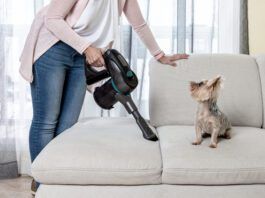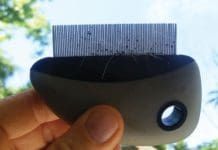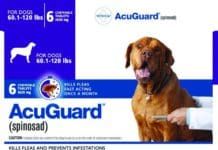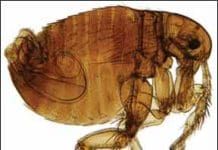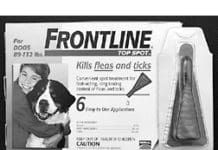Treatment and Signs of Parasites in Dogs
Parasites in dogs affect both the dogs internal organs like the heart and digestive system, their skin, and orifices like the nose and ears.
Getting Rid of Fleas in the House
The job of getting rid of fleas in your house or yard really consists of taking on both the adults and all the other flea life stages. One could think of the non-adult phases of the flea as another species of pest, given that each stage has differing life needs and vulnerabilities. Because flea eggs, larvae, and pupae all have the potential for turning into fleas, destroying the insects in the non-adult stages is critical to preventing the population from repeatedly bouncing back into your and your dog's lives.
Over-the-Counter Flea Medicine for Dogs
Last month, in Bravecto
Prescription Oral Flea Control Medication for Dogs
For several reasons, veterinarians tend to put the most stock in prescription oral or topical flea medications than any other preventatives. In fact, these are the two most effective solutions for killing fleas but they aren't without potential side effects and they should represent only a part of a dog owner's efforts to control fleas.
Flea Control: Best, Safest Practices
sleep in close proximity to each other
One More Reason to Fight Flea Infestation
In late February, the Centers for Disease Control and Prevention published a report about two people who live in the same home in Lake County, Oregon, who were diagnosed with bubonic plague – the only two cases of the disease in the United States in 2010. Because bubonic plague is so rare in the U.S. – and potentially deadly – the victim’s county and state health departments, as well as the CDC, all participated in investigating how the patients contracted the illness. Eventually, all fingers pointed at a third member of the household: the family dog. More specifically, fleas on the family dog.
Electric Flea Traps Don’t Work
I decided to test light traps a few months ago, when warm spring temperatures seemed to cause a resurgence of fleas in the editorial office of WDJ which is on the ground floor of my home in a part of California that is famous for fleas.
Natural Herbs for Flea Relief
Herbalist Greg Tilford shares his recipes for building a dog's defenses against fleas. Although they prefer a warm, humid climate, fleas can thrive virtually anywhere, even places where they seemingly have nothing to eat. When food (like your dog) is not available, fleas will feed upon the bodies of each other as they lay in wait for a larger meal, nestled within the ground covers, carpets, and cracks they call home.
Dangers of Spot-On Pesticides for Fleas and Ticks
Some people will never give up their use of spot-on pesticides, despite the health risks to themselves and their dogs. I know you're out there, and I understand. Perhaps you have a dog with a flea allergy so severe a dog who scratches and chews himself so badly that he develops severe hair loss, hot spots
Eliminate Fleas Without Poisons
Today, spot-on flea products are advertised in every sort of media available to animal guardians and veterinarians, and are touted as safe and effective. However, the safety record of these products is not as spotless as the manufacturers would make us believe. After all, they contain pesticides, which are poisons, and they also contain toxic ingredients that are not disclosed to consumers or even veterinarians without applying through the Freedom of Information Act. The danger presented by these products is apparent in the hundreds of incident reports that sit in the Environmental Protection Agency's files not to mention the manufacturer's own animal laboratory studies.
Are Topical Flea Killers Safe?
The newest generation of pesticides are being marketed as far less harmful than the old ones. But they are deeply misrepresented as harmless.
Remedies for Your Flea Problem and More
a reader's 18-year-old Timber Wolf, benefits from non-toxic flea control.



